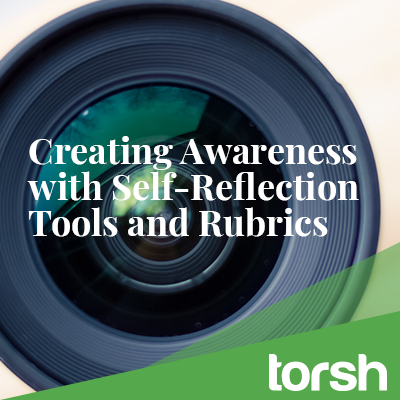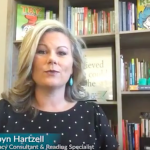As coaches, part of our job is to help bring about awareness in those we coach. While feedback may be the catalyst to awareness, once a teacher is conscious of the need or has the motivation to grow, the majority of that growth is cultivated through self-reflection. This requires the coach to shift from feedback provider to facilitator of the reflective process.
The role that video can play in bringing about this awareness is incredible. When combined with self-reflective tools, coaches can harness the power that comes from watching ourselves through a different lens. So, here are some tips for helping teachers become focused, objective viewers of themselves and their practice as a part of reflective teaching:
- Have a clear purpose for the viewing. Just as establishing a purpose for reading helps to direct our mind to find the details that most support that purpose, the same is true for viewing. It is helpful to present a question for the teachers to have in their minds as they watch their videos. For example, giving guidance such as “Watch your video and notice what lesson components you see reflected in your lesson.” or “As you watch your video, note what types of questions you ask the most?” helps the teachers focus on one aspect of their practice to observe. This can help clear the critical lens for the teachers that tend to notice all the things they do “wrong”.
- Create a checklist of objective behaviors to notice. Since instructional coaching is focused on building teacher capacity in applying best practices, having a checklist of clear behaviors to notice can be helpful in shifting from a critical or unaware lens to a more objective one. Create a checklist that outlines specifically what the teachers listen for or look for in the video? Teachers can use this to comment on their videos when they see an element reflected or upload the checklist as a separate document. Their video reflection can give a coach valuable insight into the lens through which the teacher is viewing their own practice. Click here for an example checklist on conducting reading and writing conferences with students.
- Ask them to rate themselves and use evidence from their video to support their rating. Rubrics are a great way to help teachers gauge their progress toward a goal. Prior to introducing a practice, have teachers rate their knowledge and comfort with each aspect that will be explored in the coaching. As they upload a video and use a checklist to reflect, have them review the rubric and note places in the videos that reflect growth. They can use rubric tags to timestamp exact places that they feel show progress.
- Include “next step” thinking as a part of the reflection. In every coaching engagement, the goal is forward movement. Asking teachers to set a goal or a next step action based on their reflection allows them to lead their own learning. I have found that teachers often set far more insightful goals for themselves after having a chance to do some purposeful and strategic self-reflection.
Coaching a teacher toward reflective practice takes time, but when teachers become comfortable viewing videos of themselves through a reflective lens, it has a massive impact.

Robyn Hartzell has served in education since 1998 and has experience in a variety of roles: teacher, instructional coach, interventionist, trainer, consultant, and program coordinator at the campus and regional levels. Currently, she works as an independent consultant and coach promoting effective instructional and leadership practices and championing the need for quality professional learning. Robyn takes privilege in coaching professionals in their craft and is passionate about helping organizations develop leaders who make a lasting, positive impact on the programs and people they serve.
Be sure to follow Robyn on Twitter @robynhartzellpd and check out her website at www.hartzellpd.com




